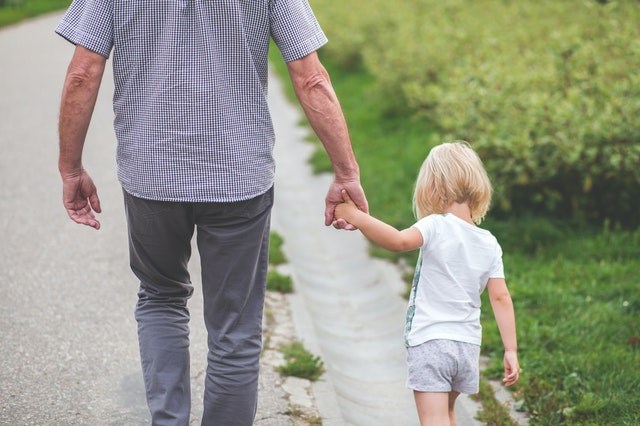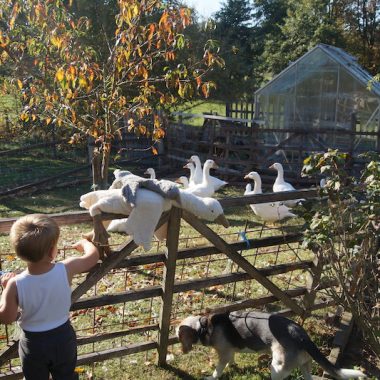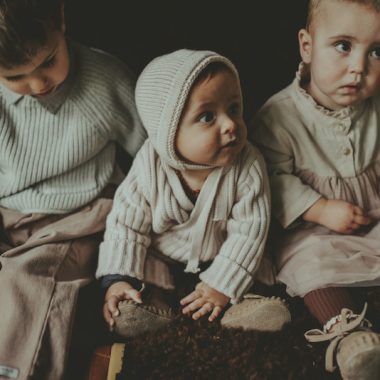The Role of Grandparents in a Child’s Life, or Who Knows Best?
The relationship between grandchildren and grandparents is often special, easy, and filled with a sense of freedom. Time spent with grandparents flies by, and the memories are often associated with the smell of pancakes. Even the strictest parents can become gentle, warm, and indulgent grandparents when grandchildren come into their lives. Being a grandparent is easier than being a parent, as they have less responsibility and stress when it comes to raising and educating the child. Therefore, they are left with simply enjoying, pampering, and loving the new family member.
Who Should Take Care of a Child’s Needs?
Children should be surrounded by loving parents who attend to their needs, creating a safe environment and helping them explore the world. Many parents manage well with their new responsibilities, addressing the child’s needs and guiding their development using their knowledge and intuition. However, many parents encounter situations where grandparents feel the need to offer advice or dictate how their grandchild should be raised (e.g., “Shouldn’t you cover him with a blanket? It’s windy outside…” or “It would be better if you made the purée yourself rather than buying it from the store…”). Older generations often have their own beliefs about child-rearing, which can differ from those of the parents. It is important for parents to stay calm and consider the advice; sometimes, it might be worth taking the suggestion, and if not, proceed as they see fit. It’s not advisable to enter into conflicts or cut ties with grandparents in such situations. A child’s world should include not only parents, siblings, but also grandparents. Relationships with grandparents play an important role in a child’s development, their relationship with themselves, their family, and their family’s history—grandparents remember and share so much! They pass on family values and traditions and find time for activities that parents might not even consider (e.g., grandchildren can explore bird sounds with their grandfather, sew a button with their grandmother, visit cows together, or paint on Easter eggs with wax). And most importantly, grandparents have more time for play, which is especially important during childhood!
What Kind of Grandparents Does Your Child Have?
Grandparents are very close to their grandchildren; they love them deeply and wish the best for them. They can be a great help to parents, taking care of their grandchildren when needed, and a child surrounded by many loving people will feel all the better. However, it’s important to consider the child’s age; if the child is under three years old, grandparents can be the best caregivers, but if the child is older, it might be worth considering whether spending time in kindergarten would be more beneficial. Grandparents can be invaluable during holidays and irreplaceable play partners for their grandchildren, but socialization and education are best fostered in a kindergarten environment among other children of the same age.
When Should You Be Concerned?
Concerns arise when grandparents want to take over the responsibilities of raising the child, seeking to replace the parents: criticizing, making decisions for the parents, acting contrary to the parents’ wishes, or emphasizing their own knowledge while undermining the parents. Older adults may feel a sense of superiority or a desire to spoil their grandchildren. While indulging children with attention and love is beneficial, it can become problematic when grandparents interfere with the child’s upbringing to the point of shielding them from the natural consequences of their actions, thus undermining the parents’ efforts. For example, a child might decide to throw a toy car into the toilet while playing. The natural consequence of this action would be the child losing the toy. However, if a grandparent quickly retrieves the toy, the child misses the lesson that actions have consequences. Experiencing the outcomes of their actions is crucial for a child’s development and independence, and excessive grandparental intervention can do more harm than good.
How Should Parents and Grandparents Act?
When observing such behaviors from grandparents, parents might feel frustrated and upset, leading them to consider limiting the child’s interactions with the grandparents, especially if their behavior is inappropriate, disrespectful, critical, or harmful to the child. However, it is always recommended to try to resolve the situation peacefully—by communicating with the grandparents and reminding them that the parents are the primary caregivers, responsible for raising the child, while grandparents have a significant but distinct role. It’s helpful to clarify the type of interaction expected and request it (e.g., “I don’t like it when you do everything for Julius. We don’t feed him; he eats by himself. We want him to grow up to be independent. Could you try to do the same?”). Everyone deserves the chance to try again. It’s a great opportunity to show children that we all have different perspectives, and even if we don’t always agree, we can negotiate and resolve disagreements peacefully. Otherwise, conflicts between parents and grandparents will mostly affect the children, who might miss out on the chance to build one of the most beautiful relationships in their lives.
By Psychologist Ieva Lingienė





